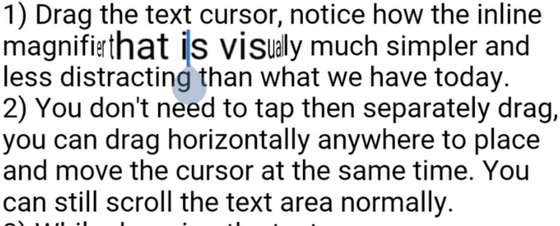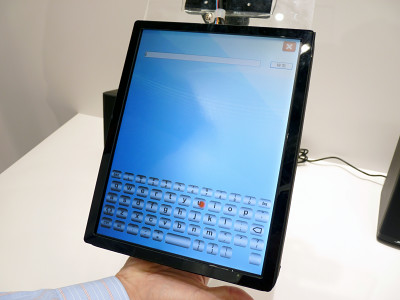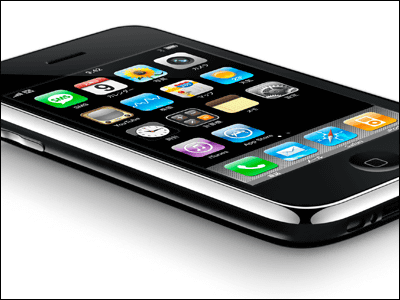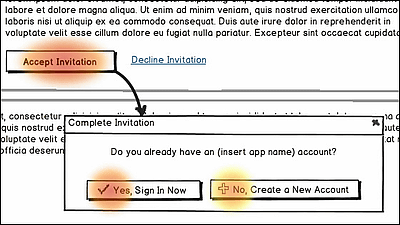An engineer who has worked at Apple and Google explains how to improve the user experience when editing text on smartphones

Unlike PCs, which use a physical keyboard to enter text, touch operations are generally required when entering text on a smartphone. However, the reason why text editing using touch operations is so comfortable today can be said to be due to a history of trial and error by engineers. Scott Jenson, a longtime engineer at Apple and Google, explains his efforts to improve the user experience when editing text on smartphones.
The invisible problem – Scott Jenson

According to Jenson, when he was working at Google in 2017, there was no research on user experience that focused on text editing. At that time, text editing on mobile devices such as smartphones was considered ``no need to change any further,'' and no improvements were made. So Mr. Jenson began his own research on text editing for seven years.
Jenson gave 10 participants simple text-editing tasks, such as removing just an 'x' from a string displayed on a mobile device or moving a word to the end of a sentence. As a result of the experiment, it was discovered that all the participants had problems with using the clipboard properly.
Jenson also surveyed participants about their experience and frequency of editing text on mobile devices. Many of the subjects who responded expressed that they were dissatisfied with text editing on mobile devices. In addition, many users answered, ``When creating complex text, such as an email containing multiple sentences, I do it on a PC instead of a mobile device.''

Furthermore, more than half of the participants said, ``If you are composing a sentence on a mobile device and need to edit it, it is easier to select and delete all the characters and then enter new characters.'' I answered. ``This answer shows that the text editing mechanism on mobile devices is not working well,'' Jenson said.
Mr. Jenson's goal is to introduce an input system similar to that on PCs to mobile terminals such as smartphones. ” to your mobile device. On the other hand, Mr. Jenson pointed out that there are problems with traditional text editing methods on mobile devices.
One of the features introduced to mobile terminals is the 'teardrop handle at the bottom of the text cursor.' It was believed that the introduction of this feature would make it easier to move the cursor to the correct position. However, there are a number of problems where text strings are accidentally dragged when moving the text cursor.
Mr. Jenson cites a 'magnifying glass' as another feature. This 'magnifying glass' feature was said to be useful for enlarging the displayed text when it was very small. However, it has been pointed out that the magnifier installed in Android has poor visibility.

Similarly, Mr. Jenson claims that the ``text selection'' function, which allows you to drag text while pressing and holding the screen, also contributes to typos.

In addition, the ``pop-up menu'' that is displayed when a character is selected and then tapped again may cause the user to accidentally tap the character and the menu will be displayed unintentionally, or the PC may It has been criticized due to the difference in operation feel.

Therefore, Jenson and his colleagues discussed and presented a new method called Eloquent to improve text editing operations on mobile devices.
One of the new text editing methods promoted by Jenson and others is ``simplified cursor placement.'' According to Jenson, by always displaying text handles like on a PC, users will be able to select characters by scrolling the screen instead of tapping. It has been suggested that the introduction of ``simplified cursor placement'' may reduce accidental taps.
In addition, the previous function that 'enlarged text pops up' was a factor that worsened visibility. Therefore, as shown in the image below, by enlarging the input characters as they are, it is now possible to enlarge small characters while improving visibility.

Additionally, Jenson and his colleagues recommend improvements to traditional menus, such as the ability to quickly flick through menu items.

Mr. Jenson said, ``When it comes to improving the user experience in text editing, it will be difficult to introduce new Eloquent because it is considered that there is no need to change any more.'' 'We want mobile devices to grow further and be more productive than today's PC capabilities, but it's very unfortunate that it's difficult to implement.'
Related Posts:
in Software, Posted by log1r_ut







